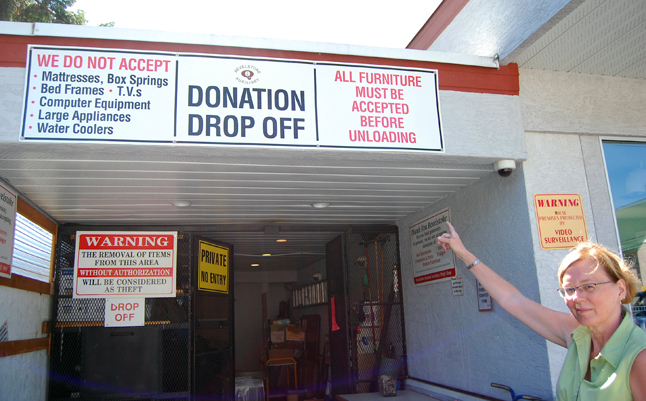
By David F. Rooney
The increasing cost of dealing with other people’s trash is forcing the aging volunteers at the Hospital Auxiliary Thrift Store to issue yet another appeal for them to stop dropping off mattresses, box springs, broken computers, appliances and other large items.
It has become an almost annual rite: every autumn people flock to town and acquire cheap or free furniture mattresses and other goods then, when they leave town, they dump them at the Thrift Store, often in such bad condition they amount to garbage.
The volunteers at the Thrift Store, many of who are senior citizens, are then forced to load them onto a truck and send them to the dump.
Well, those days are well and truly done as the dump now wants $15 for every mattress or box spring.
All furniture must be accepted by the Thrift Store before you can unload and anyone who simply wheel into the lot and dumps their clapped-out furniture can expect a polite but firm letter from the Hospital Auxiliary asking them to come and take it away. If they ignore that suggestion they can expect a visit from the RCMP.
“It’s their choice,” says Thrift Store Manager Sheila Combs.
And how does the Thrift Store know who’s dropping off what in the dead of night? Well, the area is under 24-hour video surveillance.
This is a long-standing problem for the Thrift Store that has been going on for more than a decade. And some people simply don’t care about anything except doing what’s convenient to them.
As anyone who has lived here for any length of time knows, there are plenty of lazy twits who refuse to make the five-minute run to the dump. If you drive along Westside Road on a regular basis you are bound to see plastic bags of trash that have been tossed on the roadside by these lazy people.
The shop, located at Second Street West and Boyle Avenue has also built a bike stand for shoppers and hopes they’ll use it, as those people who simply lean their two-wheelers against the legitimately for-sale furniture in front of the shop could find someone trying to buy their bikes.
“It leads to some confusion,” Sheila said.
Please click here to read a previous story about this issue.



